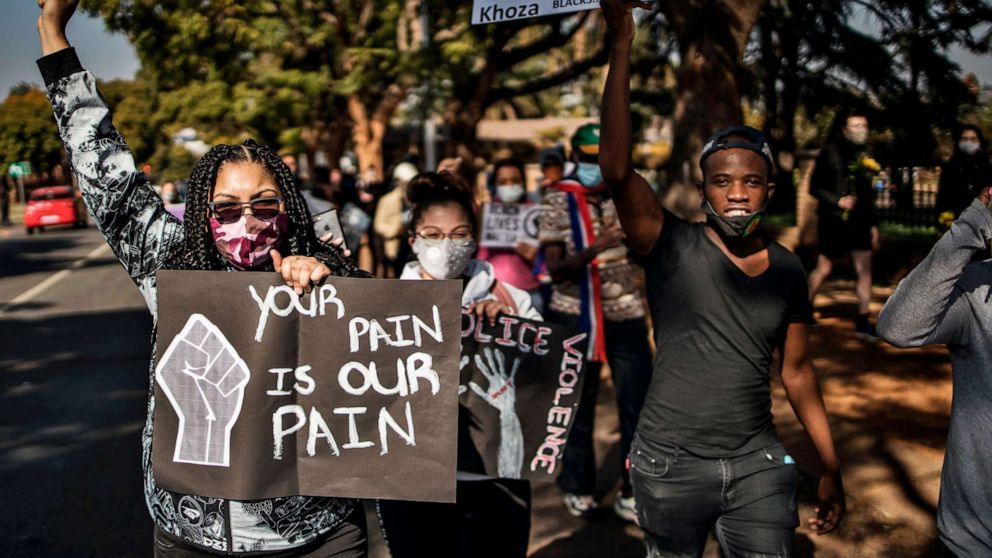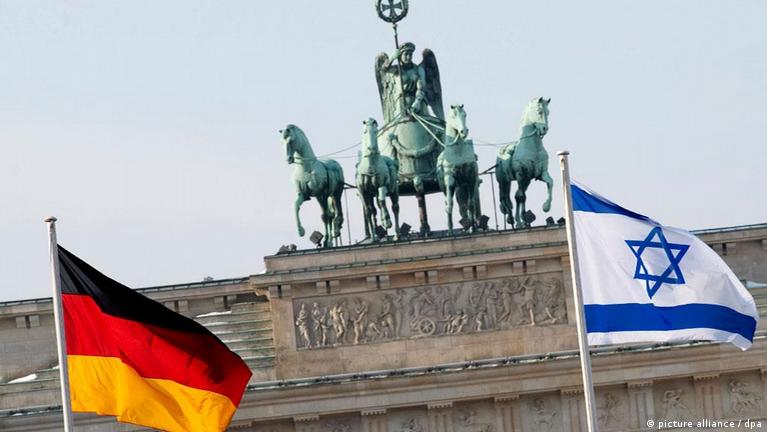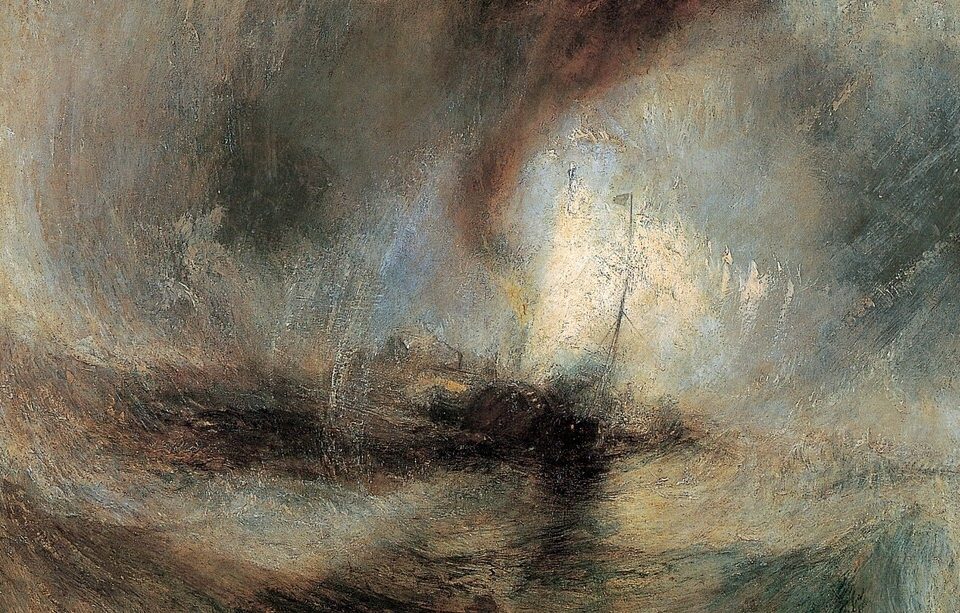By Mamadou Fall
The COVID-19 crisis is a powerful indicator of the larger impasse in which the world finds itself. It reveals the crisis of an authoritarian and racist model of power that organized the world from the height of the violence of its certainties. But the brutality of the present state of shock is such that a catharsis effect has imposed itself. We can no longer think the same way as before—at least not in all cases.
Now, suddenly, there is a vertigo which one struggles to state rationally. Part of it stems from a tragic event that occurred suddenly on May 25, 2020, revealing to the world its larger tragedy as a result of historical processes, rather in the manner of Walter Benjamin’s angel of history.[i] In 9 minutes of unbearable violence, the killing of George Floyd in broad daylight signaled the end of a fundamentally unjust social model’s illusions of freedom.
Passed the moment of rage the burden of racism is still too heavy to put up with. The George Floyd tragedy is one of those instances when the indignation runs so deep and the hurt so intense that you just let the pain be and allow yourself the silent cry of a wounded soul.
Black people in America put the bar so high in sports entertainment, academics and very recently in politics that no lamenting tango can resonate enough the drama of their life in America.
The excruciating pain takes us back to the moment zero in the XVII th century Atlantic when the only identity for a black man was the name of a ship in motion on the dark waves of the ocean.
Am I angry or just desperate to tame my rage bursting into reversed racism?
We failed to value the heroic long run journey of the black people.
They invented humanity in Africa before spreading the diasporic rainbow all over the world.
Then the hero was left laying down in shores and docks as packs of black flesh pulled or delivered by traitorous princes and traders .
There, right on the western banks of the Atlantic, the heritage of culture and history was dismissed and turned into the despair of a forced exile.
All the tragedy of modern times played in that journey which horizon ended in the promised redemption of the XIX th century.
They carried the whole burden of the forging of modernity on their back and fueled Europe and America with their blood and sweat.
They carved, With Sylvester Williams, Blyden, Padmore or Du Bois, from their insular forced exile in the Americas and the Caraïbes, the backbone of panafricanism and national liberation.
And then this: in the land of freedom, the hand of the law crucified black humanity in broad daylight. The insane gesture of a white policeman kneeling on the throat of a man tied up and already on the ground.
What a dramatic contrast between the legacy of the beginning of history and its ending claimed by Fukuyama.
What an unbearable contrast between the iconic humbling kneeling of Dr King in 1965 Selma Alabama repeated in 2016 by Colin Kaepernick and the cowardly brutal kneeling on George Floyd’s neck.
No one however can let that image remain the tragic icon and the fallen banner of our bruised humanity .
The larger picture beyond rage and race
We cannot emphasize enough the large format of the image of George Floyd’s death. It was a black man on the ground, and the murderer’s hand and knee were Caucasian like the security cordon which protected his crime. But the picture was complemented beautifully by the rainbow color of indignation. It was the standing human in masses, worldwide, who faced the foul beast of racism. We have known the history of millions of George Floyds around the world for centuries, but we now glimpse the broader horizon that this tragedy in a single day has illuminated yet again.
Hannah Arendt explained in “The Crisis in Education” that each generation of children was like a barbaric invasion that the adults had the task of civilizing. It was up to the bearers of order, the connoisseurs of the laws of the world, to initiate the new arrivals.[ii] Today it is the world itself that is constantly shifting, quickly leaving the adults on the sidelines while the youngest accompany the shift with delight. In the digital maelstrom of the 21st century, it is not the barbarians who sack Rome, but the old Romans no longer recognize their city in the morning. We ourselves become barbarians to our own world. Our customs and our knowledge become obsolete, overtaken by a civilization which goes faster than us. History no longer sweeps over us to annihilate us before building something new a few centuries later on the rubble of wars and invasions; it leaves us on the spot right now, and ends up making us understand that we have become embarrassing personae non gratae in a world that no longer waits.
In the frenzy of fighting over models and politics of public health, we identified the clinical signs of a new disease, its incubation time, and its treatment protocol. But we have largely forgotten the tragic signs that had long since announced and accompanied it, though we have not yet finished glossing over the stain of a larger disease, an omega point in the space of a world where it was born and spread, a world now taken aback. On closer inspection this virus—both corona and racist—was already there in the interstices of the many fractures of our time:
* The ecological divide
* The social divide
* The territorial and democratic divide
* The sectarian divide, and
* The gaping economic and financial divide
Each of these fractures has had its tragic signs, its long duration, and its prescriptivist protocols. Yet nothing has helped to close and heal them.
In Paris, the Kyoto protocols still struggled to find even a consensual diagnosis on global warming and the level of CO2, the disappearance of bees, the destruction of forests, and the corollary of the forced exit of wildlife from its natural habitat, melting glaciers with rising sea levels, storms and tsunamis.
The French emergency of yellow vests, after the Arab Spring and the populist surge, has revealed the depth of a social disarray in which the Grenelles, civil forums, town hall meetings, and popular demonstrations have not faded.
From the polis of Athens to the City of London, democratic space has always enclosed itself in a peripheralization of the poor by citizenship, the cens, or the color of the skin. A geometry of exclusion has always distributed the space between an institutional, political, and financial heart on the one hand, and de-urbanized nodes as reserves of labor and suffrage on the other. The slums, the marginalization of the suburbs and the decline of the countryside are the most visible witnesses.
Religion, supposed to reconcile the hearts of men with divine mercy, has become the most radical vector of exclusion and suspicion. Just look at how we travel, how airports have become bunkers and face sorting areas. Drugs and dirty money get through them more easily than the intense faith that is hidden in a heart but betrayed by onomastics.
The continued poverty in societies of abundance, the over-indebtedness of poor countries, the pirogues of despair in the Mediterranean, the precariousness of employment and the crisis of the health and education systems have for centuries reflected the unsustainable price of the opulence of a system that carried freedom and universal brotherhood as a shoulder bag. None of the promises of the Renaissance, the Enlightenment, or globalization were realized for the sociological majorities. On the contrary, we maintain an impossible war by sustaining the horizon of terror. Freedom is mainly reserved for goods and algorithms. Yet we saw all these viruses of organized chaos hatching. We always knew what was happening, but we always explained by mythos, logos, or the question. Now, this 2020 spring and summer of vertigo necessarily opens the horizon for a refoundation of the humanities on the basis of inter-epistemic responses, where the answers of ages and peoples may become audible for all.
Reason was not on the side of right. The sublime, the beautiful, the just and the good, which the market and political hegemony had obscured for centuries, suddenly shook up the certainties of a West now paralyzed with fear. Waking up is hard, and today we find ourselves having to wake up to a radically different horizon. Yet, we have sensed it since the “ambiguous adventure” of Cheikh Hamidou Kane.[iii] We have known since Cheikh Anta Diop that Africa was the childhood of the world, where humanity was invented.[iv] But on this day, COVID-19 offers us the unique opportunity to invent our own future with the audacity to rebuild a plural humanity.
The world has experienced too much of the major imbalances fueled by political hegemonies. Despite the Marshall Plan, decolonization, and the Bretton Woods order, the majority of countries have remained in the spiral of underdevelopment. The notable exception are the countries of the axis of refusal to align.
A Summons for Africa
The coronavirus outbreak has produced a strong shaking that exposes these garish imbalances. In a globalized world where over-indebtedness, ignorance, and precariousness remain the lot of many populations, several countries which had known the intoxication of power find themselves faced with an obvious inability to fulfill the elementary promises of their political systems. Let us observe how freedoms are suspended, fundamental rights to health, education and movement are confined, and all jurisdictions have become emergency jurisdictions. These unprecedented upheavals have exposed the dead end of trajectories inspired by triumphant liberalism.
Paul Valéry announced it in the aftermath of the First World War[v]. But Elias Canetti gives the most lucid and radical warning a half-century later, when he announces in his aphorisms the “exit from reality.”[vi] Most African countries, when they followed the European model by mimicry or betrayal, simply exited from reality. They followed the illusion of transmitted growth, they followed the mirages of cultural assimilation and they mostly fell into the abyss of the financialization of their economies. Samir Amin[vii] cried out until he was breathless, for decades, saying “stop!” He was ringing the bell for us to stop walking on the lost paths of development to their miserable dead ends. COVID-19 has exposed the tragedy of the “man with the crowns” and the aporias of post-colonial cultural mimicry.
From 1918 to 1945, simple pious wishes and speeches on development never survived a unilateral economic interest. Yet, a coherent French colonial policy was almost impossible due to the incomplete cohesion of the French state’s hegemonic groups.[viii] How could a system survive which, instead of stimulating local production and consumption in the colony, succeeded for a time by relying on a permanent external flow of resources to pay for imported productivity achieved outside the country?[ix] The colonial pact, securing raw materials and dismissing industrialization, was the general rule, with no room for local entrepreneurship wishing to promote production. In the French colonial situation, we witnessed the reduction of societies with their own social dynamics and processes into a set of outcasts and dependents made to pay taxes and suffer repression.[x]
The modern state in Africa used to be defined by formally enumerating its attributes of sovereignty. Its advent had been proclaimed by solemn acts of the 1950s and 60s, inaugurating Independence and the accession to international sovereignty. We had negotiated on its behalf; we ruled and we legislated in its name. But it turned out to be much more than the advent of a new order. It became a shift into the virtual universe of economic prescriptivism and legal formalism: that is, the prescriptivism of cooperation agreements and the macroeconomic models of the Bretton Woods institutions in which African powers and institutions have for decades taken the artificial detour of economic analysis and legal normativism. Suddenly in 1960, without warning, after French cabinet members discussed and planned on how to avoid another Vietnam in Africa by promoting an African administrative elite,[xi] our countries exited from the reality of indigenous power procedures, social groups, and producers, of sui generis cultures and collective identities. Because it grew from a postcolonial lab (the virus was right there in 1955-1960!), this elite now needs a complete mutation in order to fit the redeeming horizon of freedom and prosperity.
So, like Benjamin’s angel Clio raising the dead, we now summon Africa to choose alternative models, reinvent the human, and live differently. A new world is being incubated in this pandemic. It announces a symphony uniting all the long-neglected responses of a rediscovered humanity.
Pr. Mamadou Fall is Rapporteur Général du Comité Histoire Générale of Senegal and Professor of History at the Université Cheikh Anta Diop.
Notes




